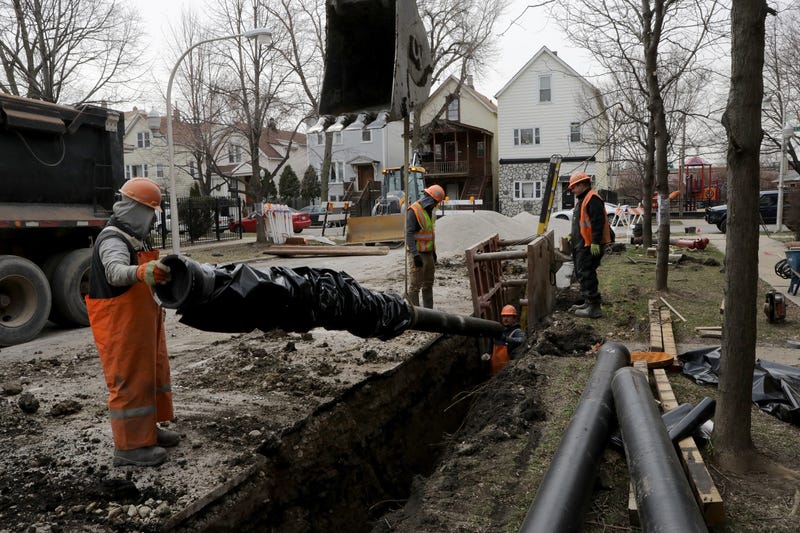
CHICAGO (WBBM NEWSRADIO) — City officials heard a hopeful message about getting rid of Chicago’s hundreds of thousands of lead drinking water lines, but eliminating the public health danger will be a daunting, expensive task.
Northwest Side Ald. Gilbert Villegas (36th), who chairs the City Council’s Economics and Technology Committee, said Chicago is not getting enough of the state’s resources to do the job.
“Four million dollars of the $230 million to be distributed in 2024 will come to Chicago, although we have the majority of the lead service lines in the state of Illinois,” he said.
Chicago Water Commissioner Andrea Chang told a joint City Council hearing that her department has been replacing lead water service lines as fast as they can to help limit lead poisoning in homes. The program, though, didn’t even start until 2021.
“You can see the numbers for all of our programs are about 4,255 right now, which is pretty exciting,” she said. “Our goal for this year was 4,500, [and] we should be able to meet it. You can … see the exponential growth in our productivity over time.”
The eventual goal, she said, was 10,000 per year. With 400,000 lead service lines to replace, though — the most in the country — it could take 40 years.
Proposed federal rules would allow for that, but environmental activists dread things taking that long.
Brenda Santoyo, with the Little Village Environmental Justice Organization, said she doesn’t want to wait that long.
“Any exposure to lead and any lead poisoning that is preventable [and] from a known source that we have the power to eliminate is unacceptable,” she said.
Chakena Perry, with the National Resources Defense Council, said she’s 30 years old, and new federal standards would mean she could be 74 or older before the work is completed.
“With all of the research and studies highlighting the risk involved with lead exposure, how can we consciously tell Chicagoans [that] generations and generations of children — who did not create this problem for themselves — that they have to wait 40-plus years for safe water.”
Literally everyone at the hearing wanted to see the job finished much sooner than later.
Listen to our new podcast Looped In: Chicago
Listen to WBBM Newsradio now on Audacy!
Sign up and follow WBBM Newsradio
Facebook | Twitter | Instagram
